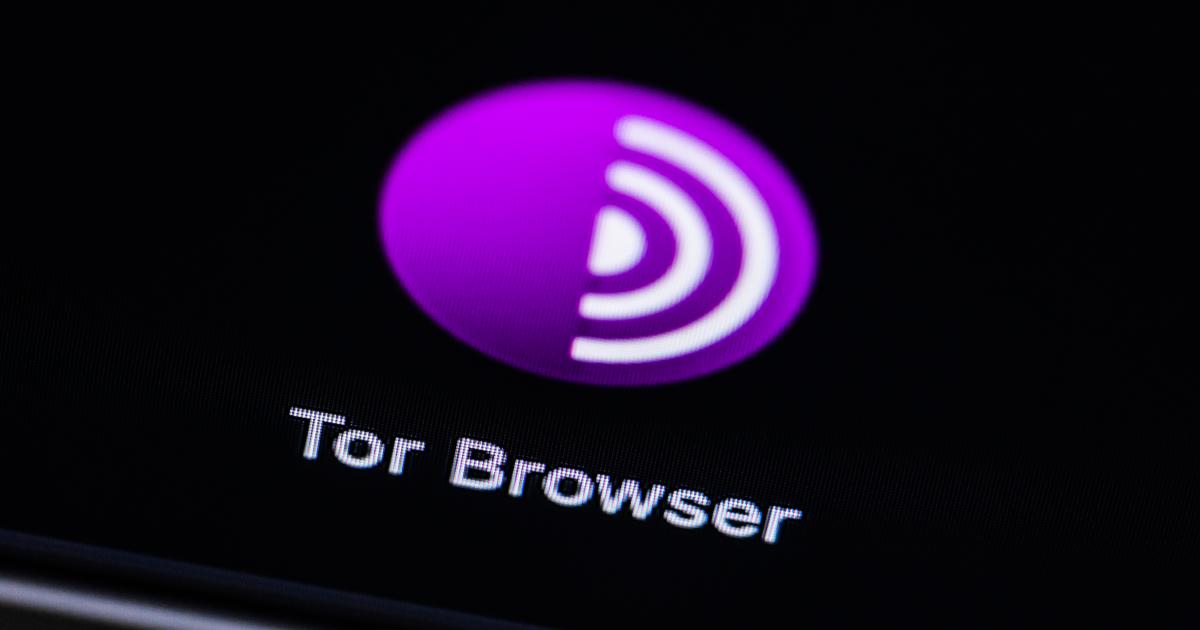It’s really worth reading the article.
Tor can be used for any internet browsing you usually do. The key difference with Tor is that the network hides your IP address and other system information for full anonymity.
The company behind a VPN can still access your information, sell it or pass it along to law enforcement. With Tor, there’s no link between you and your traffic, according to Jed Crandall, an associate professor at Arizona State University.
I don’t know if it’s even possible, but it would be cool if I could use the fediverse over TOR just for the sake of supporting TOR. Not sure if there would have to be specific .onion instances, if normal instances could just be mirrored with a .onion address, or if a .onion instance would even be able to federated in the first place. I just don’t know how it works.
Other use cases may include keeping the identities of sensitive populations like undocumented immigrants anonymous, trying to unionize a workplace without the company shutting it down, victims of domestic violence looking for resources without their abuser finding out or, as Crandall said, wanting to make embarrassing Google searches without related targeted ads following you around forever.
I’m certain an all-out legislative war would be waged against TOR if it were to become popularized for most of those reasons, under the more convenient guise of “criminals and children!”
Tor can be used for any internet browsing you usually do. The key difference with Tor is that the network hides your IP address and other system information for full anonymity
Also, this isn’t true. MANY sites and services block access from Tor, including major ones that people use everyday.
Also. Those running an exit node can and do sniff traffic.
It’s bad practice to login to stuff that’s important (like banking) over tor. Or login to anything over for you have logged into over the clear.
Also, nation states can track you using a variety of techniques from fingerprinting to straight up working together to associate connection streams. A large number of tor nodes are run by alphabet agencies. Hell the protocol was developed by the us navy.
Which ones? I use it quite a lot and never found a site that has blocked me.
There are a few, but there’s always an alternative.
I’ve also found that many ones that are blocked aren’t completely blocked, I can access them by using a new circuit (lots of these sites seem to really hate European Exit nodes but anything else has typically worked).
Is that what it is? Every once in a while I have to Ctrl+Shift+L it to get into something, but I’ve never watched that closely. What did Europe do to these guys?
https://www.nvidia.com doesn’t work
Last I tried you couldn’t access social media, Google constantly forces you through captchas because it thinks you’re a bot, and anything on a CDN will either constantly force captchas or just doesn’t work. Financial institutions absolutely are all inaccessible.
I’ve checked facebook, instagram and tiktok, they’re all fine.
I remember hearing that Yelp blocks Tor users, but I’m not sure if that is the case through proxies.
Also iirc Cloudflare blocks all Tor exits.
I’ve used sites with cloudflare over Tor. They always seem to require pressing a check box, but usually work.
I’ve noticed that just as the most aggressive ad blocker blockers are news media websites, the most aggressive tor-exit-node blockers are retail sites such as lowes.com. My working hypothesis is that they view anonymous transactions (or perhaps even anonymous window shopping) as stealing. When it comes to actionable data for market research, data about actual finalized transactions where actual money changed hands is the holy grail. It’s the data that has skin in the game. As for window shopping online, you know the drill, you do that, you hear about it on Fecebook. Until recently I searched retail sites with the site: filter of a search engine (the one that works on Tor, of course), but until recently, most site searches were even more enshittified than most of the two search engines. Now search engines are out and Tor is out. Perhaps offline shopping is in. BTW, just for shits and giggles, try carrying a clipboard next time you visit a brick and mortar retail establishment and see what happens, or better yet, whip out your cell phone and start photographing not merchandise but shelf tags. Information is power, my friends.
deleted by creator
They’re right. I dont have specific examples but a lot of wikis and some general news sites blocked me when i used it.
I mean… I asked for examples and you gave ‘there are examples but I don’t know any’, which is not really supporting the point here.
You don’t need to access a .onion instance to use Tor. You can simply perform your day-to-day web usage through Tor directly.
On your phone, you can even use Tor natively with most of your apps.
I’ve literally always browsed Lemmy over Tor. I even made this account over it, which surprised me when it worked.
How do the big CDNs handle Tor traffic? Do you find you get blocked, or is it just a matter of more captchas/challenges?
CloudFlare puts up a captcha occasionally, everything else just leaves me alone.
At this point using someone else’s browser with no adblock feels more difficult to navigate.
I see, thanks! Yeah, surfing the web without Adblock is actually horrible these days.
Lots of capchas usually, I can’t remember being outright blocked when I used it
I mean, I’ve used it. It works. But I don’t get why you would bother most of the time. It’s slow as hell and while I’m generally fairly concerned about my privacy there is a point where I can’t be bothered.
Well any instance owner could also get an onion link and host the instance over tor.
Of course the instance itself can’t really hide. Since it needs to federate with others that are not onions. But your accesses would all show as from localhost.
Just download Tor browser and go to Lemmy. World
What effect would using Tor browser to access a non onion site have over using a different, privacy-focused browser? Honest question. I assumed Tor browser was no different than other browsers in that aspect.
The difference is that your ISP doesn’t know where your packets are headed, and the destination doesn’t know where your packets came from. The ISP sees you connect to the entrance node and the destination sees you connect from the exit node, and it’s very difficult for anyone to trace the connection back to you (unless they own both the entrance and exit and use traffic coorelation or some other exploit/fingerprint). Regardless, both parties are generally able to tell that you are using TOR if they reference lists of known entrance/exit nodes. Also the anti-fingerprinting measures taken by TB are a bit more strict than other privacy-focused browsers
Thank you for the detailed answer. I’m surprised more people aren’t talking about using tor browser, considering how privacy-minded the community tends to be.
It is confusing, Tor is an excellent privacy tool if used properly (don’t log in to stuff), but I guess it’s still a technical hurdle to most. Probably also from a lack of marketing.
I think in countries where the government is decidedly more authoritarian it’s more known. On my relay right now I see a ton of russian and a smaller amount of German connections.
No problem! And yeah, it’s good to see people talking about it over here. I think it’s the best tool for online privacy OOTB (depending on your threat model), and it gets better the more people use it.
I’m certain an all-out legislative war would be waged against TOR if it were to become popularized for most of those reasons, under the more convenient guise of “criminals and children!”
I guess we’ll have to see what happens after that right wing Twitter account posted CSAM, Twitter suspended the account, then Elon said they removed the posts and reinstated the account 🤷🏽♂️
I always have Tor installed and I often use it instead of incognito browser sessions when researching stuff. It’s sometimes slow and Cloudflare made it a lot more annoying to use than ~5-10 years ago, but I’m glad it exists.
I’m sure it’s still more useful to US interests though, or it wouldn’t be funded anymore.
Any time I’ve tried to use Tor in the past I gave up because it was frustratingly slow.
Those onion layers don’t add up to nothing… also I’ve heard it’s under constant attack. Plus not enough people running relays and exit nodes.
There is no amount of money that you could pay me to run an exit node
Hence the rumors that the feds and state actors do the most of it.
And I absolutely believe it. If anyone can run an exit node, then there’s absolutely no way the NSA isn’t running one and sniffing all the traffic
If they don’t control most of the nodes in-between they can control all the exit nodes they want. If you connect though 3 Tor nodes, as soon as one of them is not controlled by them they likely can’t identify you.
That’s not to say that they don’t control most of the nodes, and your traffic likely goes through NSA nodes exclusively
The CIA, not the NSA. Tor is a great way for agents deployed abroad to phone home with plausible deniability: “I’m sorry Mr. Chinese Officer, I got homesick and really wanted to watch some BBW porn…”
Light browsing is good
I have a special hate for cloudflare in me I can’t describe
Actual legal risks and consequences don’t go away by applying wishful thinking.
Which are what
I am not sure what he’s hinting at. Just using Tor doesn’t bear any legal risks. Hosting an exit node is different, as depending on the country you might get into serious trouble if certain traffic goes through it.
Yes exactly, and I think there have been stories recently where the exit node host has been held liable for content that’s gone through it.Which is complete bullshit, but the unfortunate reality is that the legal system doesn’t need to understand technology to regulate it.
It’s not bullshit. If A has proof your system launched an attack, or sent CSAM, to another system, but your only defense is “I let anyone use my system in that way”, then at the very least you’re an accomplice.
It is bullshit, because it puts the onus of policing everything on any service provider. If a TOR exit node provider is responsible for all traffic through their node, then an ISP is responsible for all traffic through them to their users - yet it is not reasonable for ISP’s to do this. Nor should it be acceptable by law and even less so if the purpose is for law enforcement to bypass the warrant system by having private parties do the investigation for them.
Well, the law enforcement ship has sailed a long time ago, it’s more of a flotilla by now. Data communication service providers (including ISPs) have some customer identification and data retention requirements in exchange for immunity from the data itself, but otherwise —reasonabke or not— there are more and more traffic policing laws that get introduced for ISPs to abide. By starting a Tor Exit node, you become a service provider, and the same laws start to apply.
It’s no joke that we live in a surveillance state, just that some go “full surveillance” like China, while others go “slightly less in-your-face surveillance” like the US/EU.
Would it be possible to allow exit nodes to blacklist specific kinds of traffic and somehow privately verify that the traffic is not one of the blacklisted kinds (zero knowledge proof perhaps sorry not a CS person)?
An exit node can put in place any filters, blacklists, mitm, exploit injection, logging, and anything else it wants… on unencrypted traffic. Using HTTPS through an exit node, limits all of that to the destination of the traffic, there is no way to get a ZK proof of all the kinds of possible traffic and contents that can exist.
What I meant was blacklisting certain destinations. It obviously wouldn’t prevent all malicious traffic
Yeah, is this guy living in China?
To give you an idea, last time I used Tor, I suddenly started to get a bunch of connection attempts from the FBI. Was I doing anything illegal? Nope. Was TOR a legal liability? You betcha.
Connection attempts from the FBI? Could you specify that a bit further?
I was using peerblock and one of the blocklists contained known governmental IP addresses. Those blocked connections began quickly filling the logs.
Spooked the crap outta me. It’s been a few years since I did that, so I could have that detail wrong. I know it was for sure one of the three letter acronyms, DOD, FBI, CIA, but they were definitely incoming.
That does not sound plausible to me. Typically, your own computer would be behind a router that is either doing NAT or has a firewall (probably the former). Any incoming traffic would be directed to the router without any chance of reaching your computer. Whatever you saw was either outgoing traffic or incoming traffic in response to connections initiated by your own computer.
Consider this, the Tor software was accepting connections from government IPs.
Regardless of whether it was active intrusion or a significant portion of the Tor network, (at that time) had a number of governmental IP ranges in it, It’s enough to dissuade my use, at least without more significant OpSec.
I do understand your point though.
I suddenly started to get a bunch of connection attempts from the FBI.
How can I observe connection attempts like this?
I use peerblock and had some good blocklists set up. The hardest part should be finding peerblock or a more modern fork, the blocklists are mostly public. Helps keep from connecting to known bad actors.
I don’t think I really have a reason to use it.
The reason is privacy, everybody has a reason to use it.
In theory yes, but practically speaking trying to access a lot of the modern web over TOR would be at best painfully slow and at worst almost impossible thanks to DDoS protection providers like cloudflare.
This right here. A very large part of the web is inaccessible from TOR. Last I tried you couldn’t access social media, Google constantly forces you through captchas because it thinks you’re a bot, and anything on a CDN will either forces captchas or just doesn’t work. Financial institutions absolutely are all inaccessible.
Privacy is important, but most of the places you want to go with TOR to stay private won’t let you in because malicious actors want to use it for the same reasons.
Facebook has an official.onion domain and it’s the only way I access it, as it’s required for my employer.
Reddit also has a .onion as well. Funny considering their pride on Ban evasion detection they should outright block Tor.
While I agree with you, I’m wondering what the benefit is of watching youtube and posting/reading lemmy/mastodon through a tor network. Because those are the main things I do. While I do understand that in some countries and also in public wifi networks the chances of traffic being intercepted and man in the middle attacks are higher, I do not expect that to happen to my fibre connection in my western country.
Unless you browse Geocities sites from 1998, intercepting and MITMing is simply not an issue. Everything built nowadays uses https, which fully protects you against those.
Yeah people when they discuss Neworking and VPNs I’ve noticed are either illiterate to the existence of https or are deliberately not mentioning it for the purpose of misleading people in some way (in the case of VPN sponsorships it’s to get people to buy them).
then try reading the article
I’d rather not waste my time reading an article about a program I’m not currently using to find out if I should use it our not. I’d rather see a post that has bulletpoints with pre’s and cons. My time is limited enough as it is.
[edit] I realise that my comment will probably come across as unfriendly so I will add some explaining to it.
I am currently in a western country using a fibre landline and I trust my internet provider to not intercept my data or use things like a man in the middle attack. Am I right for assuming that and if so, would tor prevent that? Will tor slow down my internet? I mostly watch youtube videos and read/post on lemmy/mastodon. I am not against using tor at all, but my energy and time are limited so I don’t feel like reading a whole article just for an app I do not feel the need to use. I am currently very happy with my firefox browser and all the add-ons I use. And with all the modifications I have put into it to make it work just the way I like. Would I loose all that by switching to tor? I am prepared to change to tor but I am not in the camp of “protect privacy at all costs, even if it greatly inconveniences me”. Especially if the risks of not using tor seem quite low in my situation.
okay. perhaps instead of wasting your time writing an entire paragraph, you should read the article and you’ll find out that that entire paragraph was irrelevant
it’s actually not an article about the pros and cons of tor. it could not be summed up in bullet points about the pros and cons of tor
i’ll admit to being a little facetious before, but i implore you to read articles before commenting on them
Thing is… if I have to do that for every time someone linkdrops an article, I’ll have no time left in my day.
And it seems I was right that I have no real reason to use tor.
Thing is… if I have to do that for every time someone linkdrops an article, I’ll have no time left in my day.
if you spent less time writing comments about articles you haven’t read, you might have more time. do you do this in other walks of life? wander into restaurants you’ve never eaten at and announce “i don’t think there’s really any reason to order the fish”?
And it seems I was right that I have no real reason to use tor.
okay, i’ll sum the article up for you. the more people that use tor, the more it protects vulnerable people. journalists writing exposés about corrupt governments, refugees trying to flee, etc. the more normal people using tor, the more they get lost in the crowd. it’s nothing to do with whether you have any reason to use tor, that’s irrelevant. by using it, you’re helping those in vulnerable positions. happy? now go write something inciteful
deleted by creator
Are you really surprised I’m replying to you when you keep replying?
well yes, actually. i have time to sit down over breakfast, read a few articles, maybe reply to a few comments
you clearly live such a busy lifestyle you haven’t time to read an article before making an asinine comment
And yes, you are merely confirming my point. There is no use for me personally. I would only have to use it and endure slower internet so that others benefit. Still doesn’t change the fact that for me personally there is no advantage. You can argue all you want but that’s what it comes down to for most people.
well that’s a pretty fuckin stupid viewpoint in my opinion. “i’m not going to help protect the careers and possibly lives of people in authoritarian countries, because i’d have to install a programme and possibly even launch it a couple of times per month”. running folding@home did me no advantage, i still did it.
And if you keep replying I’ll keep replying. No need to be surprised about that.
don’t worry, i won’t be. i was being flippant because i thought you an idiot, but it turns out you’re willfully ignorant.
I heard of a guy who went to prison because he bought something from Allegro (Polish Amazon) over TOR. Someone used the same exit node for hacking, so they pinned it on him.
What country? Sounds like a kangaroo court or a court staffed entirely by old people.
court staffed entirely by old people
Isn’t that most courts?
Poland.
He could’ve easily got it solved but he didn’t have money and the public defender just told him confessing was the best option.
It might be a legend, it’s just a thing that supposedly happened to someone in a community I participate in.
Yeah, that ruling is ridiculous.
Actual legal risks and consequences don’t go away by applying wishful thinking.
I thought the point of Tor was the anonymity?
Your anonymity goes out the window when you log in to any service. Your privacy goes when you give them your shipping information.
“Czesc, I am Mister Anonymous. I would like to buy this Book. Please send it to Jan Pawel at this address, dziekuje.”
deleted by creator
deleted by creator
It’s a hidden setting because it’s not recommended to change that setting for people who need anonymity.
This setting?

I will use it if the speed is comparable to normal browsing…
In my experience it’s a bit slower but not by much, I usually only access text based websites over Tor though with minimal images, streaming over YouTube can be horribly slow but it’s generally worked okay for me.
deleted by creator
It’s a web browser. Slower than others and some pages won’t work but other than that, it does just that.
…I mean, it’s more like the web browser makes it easy to use the Tor network. The network is the slow part. Your requests are getting ping-ponged all over the world intentionally taking the long way around.
It’s great for anything low bandwidth that isn’t tied to your identity, and helps for peace of mind, despite its issues. You do run into captcha or DDOS protection issues occasionally, but the new tor circuit for this site button sometimes works. Also it uses letterboxing to prevent resolution-based fingerprinting, which isn’t very pretty, but leaving it at its default size (or locking the size using the WM) works well and is good for privacy.
deleted by creator
On the other hand, there’s no way to track you. Useful for looking up medical info in a way that search engines and such can’t relate back to you. Often I’ll keep browsing in it once I’ve opened it because it’s just basically Firefox.
This is only true if you have the most “paranoid” security level selected, and at that point anything that relies on Javascript (or any of the other features that get blocked) will break. Enabling Javascript or the other blocked Web features will make it fairly trivial to track you especially the more you browse, so at that point you might as well just be using a regular VPN.
Tor itself isn’t the problem in this equation, it’s the browser, and they tend to leak information like a sieve
[This comment has been deleted by an automated system]
Sure, it all depends on how paranoid you are, my point was more that saying someone is untrackable if they use Tor has a lot of caveats.
For the average pleb it’s probably fine, if all they’re doing is just trying to dodge regular trackers and not the authorities
It’s great when you want to connect two devices behind NAT without relying on any specific third-party server or service. I
sshto my laptop from my phone with it when away from it.It’s also useful to circumvent censorship, though it depends on the country. Also, websites employing wide-range IP blocks, in my experience, more often than not still allow Tor.
How does Tor help
sshbehind NAT?You run a Tor Hidden Service with
sshdon one device. Knowing the .onion address, the correct port and having the corresponding private key on the other device (all of that not really subject to change), you can run the Tor daemon on it (for Android, you can use Termux) and connect withssh, usingtorify nc %h %pasProxyCommand.
I use it to access any websites that I want to that Virgin Media block due to court orders issued by the UK high court.
Virgin Media
Damn. Looks like the UK is more restrictive than I’d thought.
I use it, it’s a bit slow and you sometimes get lots of captchas but overall I think it’s pretty good.
You go first.
I imagine more people would use Tor if they could get paid to provide bandwidth (like Orchid as described on FLOSS Weekly 633).
Someone correct me if I’m wrong.
Operating nodes is expensive, offers no reward, and comes with a serious legal risk.
This won’t stop the NSA from operating a few. I assume that a significant portion of Tor nodes is run by intelligence agencies. If they control all nodes used for a connection(i believe three are used), they can probably piece together what connections a user is having.
It is expensive. And yeah, it might get you into trouble in some places.
And yes, the glowies use it, but journalists and whistleblowers use it too.
I’m under the impression that my use will only make it slower for people who really need it.
It will take some performance, but it’s also creating noise which is a good thing.
There’s still plenty of bandwidth to go around: https://metrics.torproject.org/bandwidth.html
But that’s part of its appeal. How else do I know I’m one of the cool kids?
People treat this as a suggestion. It’s actually a warning. A warning of what will happen if we overuse TOR.
On the desktop, I use Whonix which does utilize the Tor Network. That being said, I rarely use the Tor browser outside of it.
Are there any good iOS Tor browsers? All that I’ve seen are either shit or require some insane subscription.
Due to Apple’s policies, there are no good ones. The least bad one is called Onion Browser and is recommended by the Tor Project.
Interesting, is this due to all browsers being required to use Safari or something? I always figured since there are VPNs on iPhone that TOR would be no problem.
You can use any browser you want with Tor, the issue is that browsers are the main source of tracking and de-anonymization, so by being forced to use Safari there is only so much that Tor can do to keep you anonymous.
Onion Browser is decent.
Both are broken as far as I know. First one hasn’t updated for years, and recent reviews for the second one claim it crashes on startup.
I use this one on my iPhone and iPad and I’ve had no issues.




























